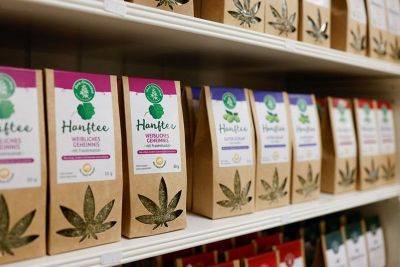In climate push, German chemical maker swaps oil for sugar
LEVERKUSEN, Germany — At one of Europe's largest chemical complexes, German group Covestro is trialling the manufacture of a key product using sugar as a base material instead of oil, as the industry seeks to reduce its carbon footprint.
The pilot project involves producing "aniline", a chemical used in making foams -- used widely in mattresses and armchairs, as well as building insulation.
While large-scale, commercial production is probably years away, the experiment marks a small step in the chemical industry's battle to slash carbon emissions as Earth faces a dire climate emergency.
Of the 100 million barrels of oil produced worldwide every day, "a quarter goes directly into the chemical industry," said Walter Leitner, from Aachen University, which has been involved in the aniline project for a decade.
"The chemical industry needs to be completely rebuilt."
Plastics manufacturer Covestro -- a former division of chemical giant Bayer -- started trials at its complex in the western city of Leverkusen at the end of 2023, after laboratory tests.
In a 100-square-metre (1,080-square-foot) room, aniline, a transparent fluid, is extracted from a 600-metre network of intertwined pipes.
Using a process developed by University of Stuttgart researchers, fermented sugar is treated with chemicals to make the product.
Aniline is used as the base ingredient for chemical MDI, which is an essential material in manufacturing foams.
Traditionally, aniline has been obtained from crude oil derivatives like naphtha and benzene, but producing it emits large quantities of carbon dioxide, a key greenhouse gas.
Around six million tonnes of aniline are produced globally a year, around one million tonnes of it by Covestro.
So far, the pilot project in Leverkusen produces just a tiny part of this, extracting just half a tonne of aniline a day.
Some experts are sceptical about such an approach.
The use of plant matter in manufacturing may cut out fossil fuels but whether it can lead to carbon neutrality "is often questionable", Jens Guenther, from Germany's Federal Environment Agency, told AFP.
This is particularly the case when it comes to the use of "so-called cultivated biomass like







